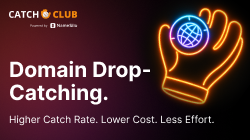Title: Google's PageRank(c) Unwrapped
Author: Robert G. Thrasher Il
Article:
There are many low cost ways to market your service or product
both on the Web. All require tiresome manual research and
constant attention. However, as a fellow entrepreneur, I can
assure you that they will eventually pay off if you do it right.
The search engines are a wonderful resource. One of the newer,
more advanced, very accurate and rapidly growing is Google.
Google's proprietary PageRanké system is used to determine how
relevant your site is. We have uncovered some of what makes
Google tick.
First, to view your sites PageRanké, simply download the Google
Toolbar for Internet Explorer, and visit your sites home page.
Ironically, while we researched Google we stumbled upon the
formula by conducting a search in Google.
The original* PageRank formula: PR(A) = (1-d) + d (PR(T1)/C(T1)
+ ... + PR(Tn)/C(Tn))
For math wizards: PR(x) is the PageRank of x, C(x) is the number
of outbound links on a page x, d is a damping factor set between
0 and 1 and is controlled by Google.
For the rest of us: Your sites PageRank is almost completely
dependent upon links to your site, backward or reverse links,
reduced, to some degree, by the total number of links to other
sites on that page. A link to your site will have the highest
amount of impact on your PageRank if:
1) The page linking to yours has a high PageRank. 2) The total
number of links on that page is low, ideally, just the one link
to your site. A site with a high PageRank and a large number of
outbound links can nullify the impact on your PageRank.
To increase your PageRank, simply get as many links to your site
from pages with a high PageRank and a low number of total links.
Theoretically you can obtain a PageRank of 100% . You can also
increase your PageRank by attaining many links to your site, no
matter what their PageRank, as long as they are ranked. This is
a good overall strategy since it will help you across the board.
Another contributing factor to your sites Google ranking is the
IR score. This score relates the relevance of the search query
to the actual text in the linking page and your site. One of IR
factors is the anchor text, or the text in the link to your
page. According to a Google's creator, "Anchors often provide
more accurate descriptions of web pages." Thus, for sites that
allow you to add URL's be sure to put a link title with
descriptive keywords. Google also uses your page title, font
sizes, formatting, keyword positions, and proximity. Remember
this though: Computers determine the search results, but it's
humans that will, or won't, click on the links, so be sure
titles with keywords make sense.
In Summary: Whether it is Google, other search engines or
pay-per-clicks, the meticulous selection of key-phrases, and
descriptions utilizing these key-phrases, are crucial to
successful Web marketing campaigns. The final piece, probably
the most important to determine ROI, is a tracking system to
inform marketing personnel if the clicks being generated with
any campaign result in sales. There are many campaign variables
that even though you produced a 5% click-through rate, might
still not result in sales.
* The formula was located by Pete Freitag. This was the original
formula and it has likely evolved since the Google founders were
at Stanford. But the same premise holds that your importance is
dependent strongly upon what others say about you via how they
link to you. It is, in my opinion, quite ingenious, and Google
is one of the most important tools utilized by my staff for many
purposes.
About the author:
Rob Thrasher is a New Millennium Business Consultant and can be
reached at RobThrasher.com
Title: How to get Website's Ranking Hammered by Google
Author: MikeNew.net
Article:
You keep hearing about how to get better rankings at Google,
right? Well, now it's time to hear a few reasons why Google will
penalize your site's rankings. Take heed, or your own site may
suffer.
This list is by no means comprehensive, but I assure you that
Google will give your site search-engine rankings a cumulative
beating for the following things:
1. Submission. What the...?! Submission?! Yes. Direct submission
of your site's URL to Google will result in a small penalty to
your ranking. That means that every month from now on, when you
would normally be faithfully submitting your site to Google,
kick yourself instead. It's okay to submit your site once, but
there's no need to do it again.
Here's how to get around that little bump in the road if you've
got new content you really, really want Google to see sooner
than later: Submit a page from a different site. Let's call your
site "site A." What you'll do instead is submit site B, which
links to your site, site A. That way, the Google spider will
give a small penalty to site B, and think it discovered site A
on its own, which will result in a boost to site A, at least no
penalty to site A. Follow?
2. Fail to buy Google adwords. This one is simple. If you're not
willing to spend a little dough, you're not willing to do what
it takes to get to the top of Google. It doesn't take much,
either.
In the long run, spending even five dollars at
http://adwords.google.com will boost your site's rankings for
the keyword ads which you purchase. Inexplicable though it may
be, it works.
3. Title your pages badly. For example, a page with a title that
is too long, or a page with a title which is unrelated to the
content of the page. That's an unpardonable sin at Google.
There is nothing more important to any page's ranking than the
title of the page. Keep it short. Less than four or five words,
if possible. The shorter the title, the more focused and
relevant Google will consider that page to be.
4. Lots of small font on your pages. That's considered spam! In
theory, you could use <H1> tags </h1> or size 5 font on all your
text and receive a boost for all the words in that size, but
that would be impractical because of your surfers, who might
actually want to read what you wrote on your page in the first
place. Forget that idea.
Just use size 2 or 3 font, and if nothing else, at least you
won't get penalized.
5. Invisible keywords on your page. i.e., a whole bunch of white
words on a white background, on the bottom of your page. Spam
again. It's easy for the Google spider to pick up, and yes, they
will hammer your ratings for it.
Instead, write relevant keywords, high in your page text, and
make your most important keywords come out first in the Title
tags of your HTML page.
Your overall best shot at getting good rankings for your site:
Useful content. It's like the old saying you heard in school:
"If you spent as much time studying as you did cheating, you'd
be in the top of your class." (I'm sure you never heard that
directly, but I think you get the point.)
The ultimate fix: There is no traffic-builder like high-quality
content. You will find people linking to you without your asking
for it, and that will catapult you to the top of the search
engines. Your site's visitors are real people, with a real need
you can fill. If you'll use your website to provide them with
reliable information, services, or products, it will be as
successful as any offline venture.
About the author:
Mike New, a free-lance search engine and site optimization
consultant, specializes in getting top rank listings for
websites at Google. Aside from optimizing and promoting, you'll
find Mike developing websites in ASP or PHP, and upon request,
doing it ASAP.









